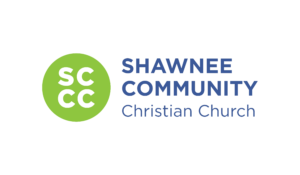a little r & r

On Sunday, May 16, SCCC will recognize our graduates. Despite the obstacles graduates have endured the last year or so, this remains a major milestone in their life. Talk of becoming “independent” now turns a corner from talk to reality.
I’d like to use this week to focus on the 4 major stages and 3 major transitions necessary for a happy life. The first 2 stages and first transition: from dependence to independence surprise no one. We know them well. The third stage and second transition from independence into interdependence also is normal and mostly understood. But the fourth stage: absolute dependence on God may come as a surprise and comes with peculiarities unique to end of life issues little understood, though it can occur amid all ages of life except the first.
We are all very well acquainted with dependence. From our birth until we graduate, we are deeply dependent on the kindness and guidance of adults: parents, teachers, coaches, etc.
Child psychologists can enumerate all kinds of important markers over this eighteen-year period: from infancy to chumship to puberty to early adolescence. No transition is harder on families than this stress-filled transition from dependence to interdependence when the parent-teen relationship can feel like fighting World War III.
But once parents (and to a lesser extent, teens) understand the primary developmental task of adolescence is “differentiation,” when our child undergoes the proverbial “identity crisis” and when they define themselves as separate and distinct persons from their parents, the easier this transition can be. Knowledge is comfort moving through this difficult transition.
During this transition parents have to walk the tightrope between setting realistic limits while granting their child space to exercise freedom and “make their own mistakes.” God bless all parents of teens with flaming hormones.
So far, I haven’t said anything you didn’t know or didn’t know you knew.
At this point many in our society might think, “Okay. Once our child is independent, they have reached the pinnacle of human social development.” We can be proud, as parents well should be, that we have successfully launched our child into becoming adults who know how to think for themselves, do for themselves, and speak up for themselves. Hip! Hip! Hurray!
But, to talk to lots of people in our society, independence is the final stage in human development. However, two stages remain, the first of which is interdependence then all people struggle between what psychologist Erik Erikson calls” Isolation vs. Intimacy.” It is this stage in which young adults are most likely to make major decisions regarding gender, sexual practice, partnering, marriage, childbearing, and group membership. It’s a stage where often life-long relationships and friendships (along with careers) are forged; and from the perspective of religious institutions, whether to relate to a faith community. It’s also the stage people hone their ability and often the necessity to put another person or group’s needs ahead of their own.
The greatest challenge in achieving interdependence occurs in partnering and marriage, where the most successful couples have learned to put the needs of their partner or spouse ahead of their own needs. This can be torturous for people who have never learned how to be altruistic and think of others first and themselves second.
For any person to negotiate this transition from dependence and independence to interdependence successfully, they will have to experience a Copernican Revolution of their spirit. They will need to acknowledge they are not the center of the world. If they fail to submit to this revolution, they are likely to give into the human propensity for selfishness and end up very angry, miserable people. These folks are stuck in adolescence, or “fixated” as Freud says.
Yet, once again, people may believe they have reached the mountaintop by assuming interdependence is as high as they can go. But achieving interdependence and enjoying all its benefits can be a mirage. Anyone who has ever climbed a mountain and found a great overlook may falsely believe they have reached the top of the mountain when they haven’t.
The summit of our life’s pilgrimage to full spiritual maturity is this fourth stage: our absolute dependence upon God. Rarely have I seen a young person so spiritually precocious who has reached this fourth stage, though some have. They are extraordinarily gifted with a wisdom beyond their years; though all the stages can swing back and forth over the course of a day or a lifetime.
So, how do we know we might be accomplishing this 4th stage? Often it’s thrust upon us, when we face life’s hardest existential questions like illness or health and life or death. These eventual questions explode any illusion we’re in complete control of our life or its longevity. This is when we are most open to acknowledging our absolute dependence upon God. It comes with our woke awareness we can never and will never be in full control of our world or our lives. Understandably, these great, existential questions mostly occur in the second half of life.
This may strike us as enormously disappointing, but this last stage also comes with the opportunity to be freed from any inner demons or inconsistencies in our personalities that hold us captive and weigh us down. We become “Free at last, free at last.”
The great heroes and saints of the church and the world discovered this freedom and often articulated it. King said it, “I don’t want to die, but I’ve been to the mountaintop.” He knew he wasn’t in control of his fate; yet saw the BIG picture before he died! My mentor Forrest Haggard, before dying from ALS, said, “The idea of being dead doesn’t bother me. It’s the dying I dread.” He knew his Redeemer lives! Mother Teresa kept serving the poor in Calcutta, but before she died she was free to say, to everyone’s surprise, that she hadn’t felt close to God in years.” And yet, she kept on serving because she knew she had still seen God’s face in the poor! All of these persons were aware they had reached the true pinnacle of human, spiritual, development: the knowledge of our finitude, that there is so much we cannot control.
I think we reach this fourth phase in our own lives when we can say “I don’t know what the future holds but I know who holds the future. Because He lives.” If this is all we can affirm, it is enough; because in the final analysis all we need to believe is that God knows. God knows He lives!
Praise God!
Rick



